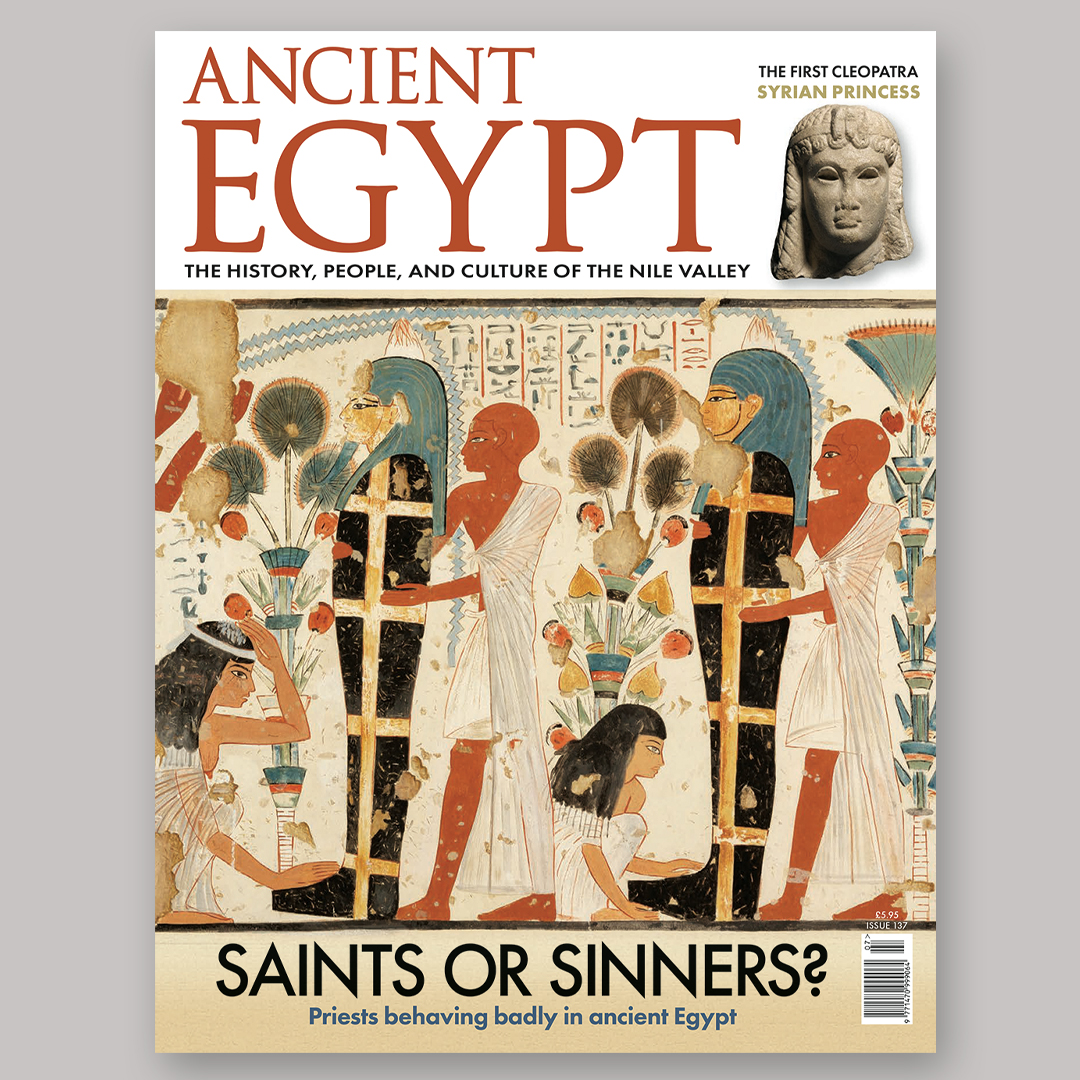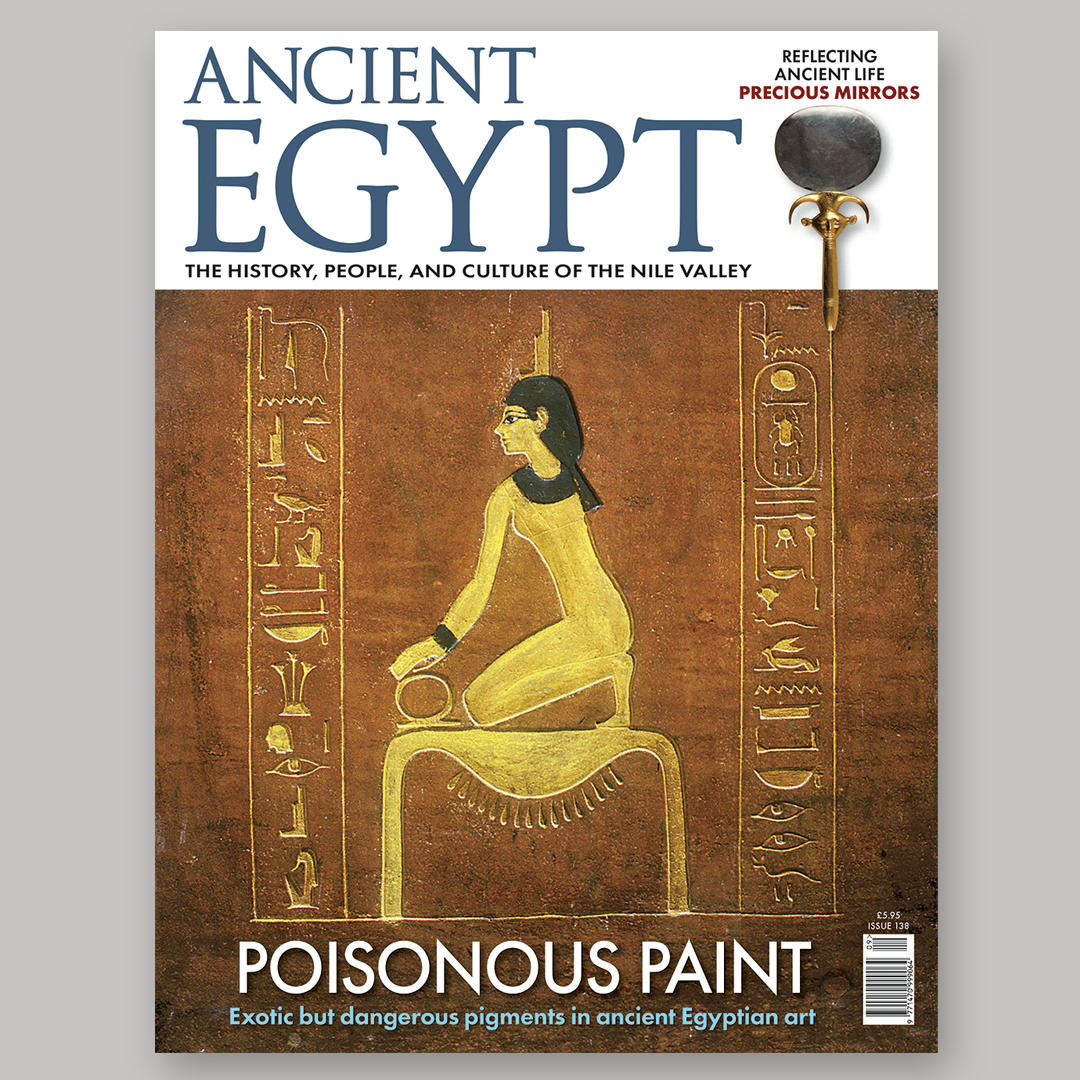AE 137 - Jul / Aug 2023

Egyptology can be full of surprises, as the articles in this issue illustrate. Although most of our readers will be aware that the famous Cleopatra was the seventh Egyptian queen with that name, it will come as news to some. Over the next few issues, Lloyd Llewellyn-Jones will tell us about them all, starting with Cleopatra I, ‘the Syrian’.
Excavation of archaeological sites in Egypt continues to unearth unexpected new treasures. In the past, most of the Egyptian and foreign missions have concentrated on sites in Middle and Upper Egypt, where the dry conditions have led to the better preservation of remains. Wolfram Grajetzki tells us about the life and times of a Thirteenth Dynasty vizier whose tomb has recently been discovered on the West Bank at Luxor. In Middle Egypt, Karl Harris has been ‘out and about’ to photograph a little-known necropolis near Akhmim.
Increasingly, however, the focus for Egyptological investigation has moved to the Delta, and one site that has been under excavation for several years by a Polish mission has fundamentally altered our understanding of Late Predynastic and Early Dynastic culture in Lower Egypt. The quality of the artefacts uncovered there, including a pair of sheet-gold statuettes, is astonishing, as Julian Heath reveals.
The magnificent monuments and stunning objects that have survived sometimes encourage us to think that ancient Egyptians enjoyed an ideal lifestyle in a perfect society. In fact, they were witness to their fair share of scandals. A minority of the priesthood was responsible for criminal activity, as Roger Forshaw reveals. Meanwhile, the myth of the Heavenly Cow that Andrew Fulton recounts is as bloodthirsty as any modern horror movie.
And you can be surprised by unexpected encounters with Egypt much nearer to home, as Hilary Wilson explains.



